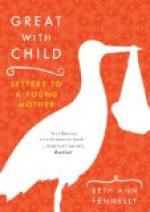Perspiration may be checked in two ways. 1. by filth on the skin; 2. by what is commonly called taking cold—for taking cold essentially consists in chilling the skin to such a degree as to stop, for some time, the escape of this moisture. Most persons have doubtless observed, that in the first stages of a cold, they frequently have a very dry skin. Whereas, when we are in health, the skin usually feels moist.
Our health is not only endangered, and a foundation laid for fevers, rheumatisms, and consumptions, by stopping the pores of the skin with dirt, or anything else, but there is also danger from another and a very different source.
The blood, in its circulation through the body, is constantly becoming impure; and as it thus comes back impure to the heart, is as constantly sent to the lungs, where it comes in close contact with the air which we breathe, and is purified. But this same purifying process which goes on in the lungs, goes on, too, if the skin is in a pure, free, healthy condition, all over the surface of the body. If it is not—if the skin cannot do this part of the work—an additional burden is thus laid on the lungs, which in this way soon become so overworked, that they cannot perform their own proportion of the labor. And whenever this happens, the health must soon suffer.
The strange belief, that “dirt is healthy,” has much influence on the daily practice of thousands of those who are ignorant of the human structure, and the laws which govern and regulate the animal economy. It has probably originated in the well-known fact, that those children who are allowed to play in the dirt, are often as healthy—and even more healthy—than those who are confined to the nursery or the parlor.
Now, while it is admitted that this is a very common case, it is yet believed that the former class of children would be still more vigorous than they now are, if they were kept more cleanly, or were at least frequently washed. It is not the dirt which promotes their health, but their active exercise in the open air; the advantages of which are more than sufficient to compensate for the injury which they sustain from the dirt. That is to say, they retain, in spite of the dirt, better health than those who are denied the blessings of pure air and abundant exercise, and subjected to the opposite extreme of almost constant confinement.
There is something deceitful, after all, in the ruddy, blooming appearance of those children who are left by the busy parent to play in the road or field, without attention to cleanliness. If this were not so, how comes it to pass that they suffer much more, not only from chronic, but from acute diseases, than children whose parents are in better circumstances?
I am the more solicitous to combat a belief in the salutary tendency of an unclean skin, because I know it prevails to some extent; and because I know also, both from reason and from fact, that it is a gross error.




